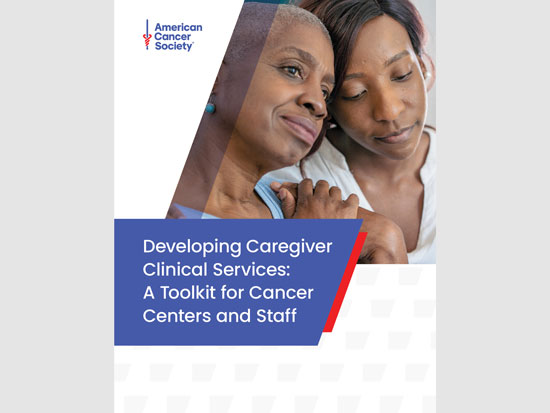
By Laura Gasque
To help meet the needs of the growing number of people caring for family members and friends with cancer, the American Cancer Society has released the guide “Developing Caregiver Clinical Services: A Toolkit for Cancer Centers and Staff,” co-authored by University of Alabama at Birmingham School of Nursing Associate Professor and holder of the Doreen C. Harper Endowed Professorship in Nursing, J. Nicholas Odom, PhD, RN, ACHPN, FAAN. According to the ACS, this toolkit is the first of its kind to provide the tools and resources that oncology leaders, clinicians and staff members can use to implement for caregiver clinical services.
"Building and sustaining formal support services for family and friend caregivers has been extraordinarily challenging with the current structure of the U.S. health care system,” Odom said. “This Toolkit provides concrete, step-by-step guidance to cancer centers on how to plan for and implement a functional and fiscally sustainable model of clinical care for caregivers.”
Odom is board-certified in advanced practice palliative care nursing, with more than 10 years of experience in critical care and nearly 15 years in palliative care. His program of research focuses on developing, testing and implementing early palliative care interventions for minority and historically under-resourced family caregivers of individuals with serious illnesses.
In addition to his role in the School, Odom is Director of Caregiver and Bereavement Support Services in the UAB Center for Palliative and Supportive Care, and an Associate Scientist in the UAB O’Neal Comprehensive Cancer and the UAB Minority Health and Health Equity Research Center.
“Our reliance on families providing support to their loved ones with cancer will markedly increase over the coming decades,” Odom said. “By establishing caregiver clinical services, cancer centers can ensure caregivers are effective and healthy in their role, which can be demanding and highly stressful. This new toolkit provides a roadmap for making such services possible.”
